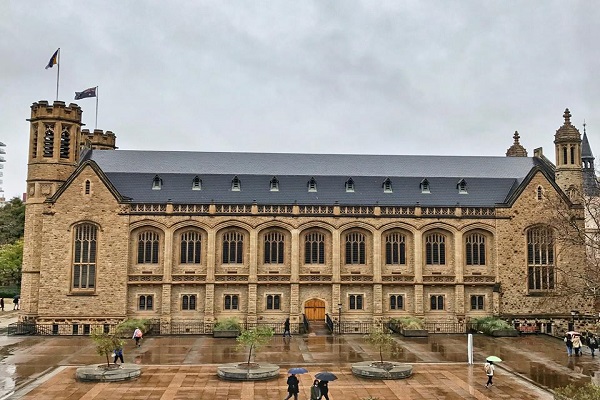Leading Energy Expert Appointed as Future Industry-Making Fellow
Leading energy expert, the University of Adelaide’s Professor Christian Doonan, has been appointed as a State sponsored Future Industry Making Fellow. In his new role he is set to accelerate new ideas and solutions that will put South Australia at the forefront of renewable energy, minerals and resources research.
Professor Doonan’s position is anchored in the University’s Institute for Sustainability, Energy and Resources and is the third awarded by the State to the University of Adelaide.
The role is jointly funded by the Government of South Australia (Department for Industry, Innovation and Science, DIIS) and the University of Adelaide.
The University of Adelaide’s Professor Anton Middelberg, Deputy Vice-Chancellor (Research) said Professor Doonan’s appointment underlines how the University collaborates with relevant industries in South Australia and beyond to have an impact on society.
“The University continues to be a home to globally leading research talent like Professor Doonan. His research is at the cutting edge of existing and emerging industry that is building sovereign capability in renewable energy technologies.
“Professor Doonan’s appointment is aligned with the University’s strategy to develop and accelerate solutions that deliver sustainability, equity and prosperity for the planet and its people, underpinned by breakthrough research.
“Through this Future Industry Making Fellowship, the University will strengthen our collaboration with the State government to play a world-leading role in scaling hydrogen production in Australia.”
Deputy Premier and Minister for Industry, Innovation and Science, the Hon Dr Susan Close MP congratulated Professor Doonan on his new appointment as a Future Industry Making Fellow.
“Professor Doonan has an impressive track record of attracting significant investment to drive multidisciplinary research projects with a focus on energy transition,” she said.
“I am confident that he will further strengthen research efforts in areas of state priority – including scaling green hydrogen production – and drive greater university-industry collaboration.
“South Australia is home to some exceptional researchers and through the Future Industry Making Fellowships Scheme, we can continue to attract and retain global research talent and secure more nationally prestigious fellows to our state.”
“The University continues to be a home to globally leading research talent like Professor Doonan. His research is at the cutting edge of existing and emerging industry that is building sovereign capability in renewable energy technologies.”
Professor Anton Middelberg, Deputy Vice-Chancellor (Research), the University of Adelaide
Professor Doonan is currently the Research Director for the CRC bid Scaling Green Hydrogen, and a Chief Investigator on the recently awarded ARC Centre of Excellence for Green Electrochemical Transformation of Carbon Dioxide (2022-2029).
The University of Adelaide’s Professor Michael Goodsite, Pro Vice-Chancellor (Energy Futures) and Director, ISER said that since his appointment at the University of Adelaide in 2010, Professor Doonan has developed a world-leading research group in the broad area of porous materials for sustainable processes.
“Over the course of his career, Professor Doonan has led over 20 large scale multidisciplinary projects, which have received in excess of $42 million in funding from research and industry bodies including Defence Science and Technology Organisation (DSTO), Australian Research Council, and the US Department of Energy,” he said.
“The commercial relevance of his work can be measured by multiple projects with Petronas Global (research contracts totalling over $3 million) focussed on energy transition research such as carbon dioxide utilisation and hydrogen storage.”
Professor Doonan’s appointment as the ISER Future Industry Making Fellow will be used as leverage to maintain South Australia’s competitive advantage in clean energy and industries and expand R&D opportunities by partnering with the State’s businesses, communities and researchers.

